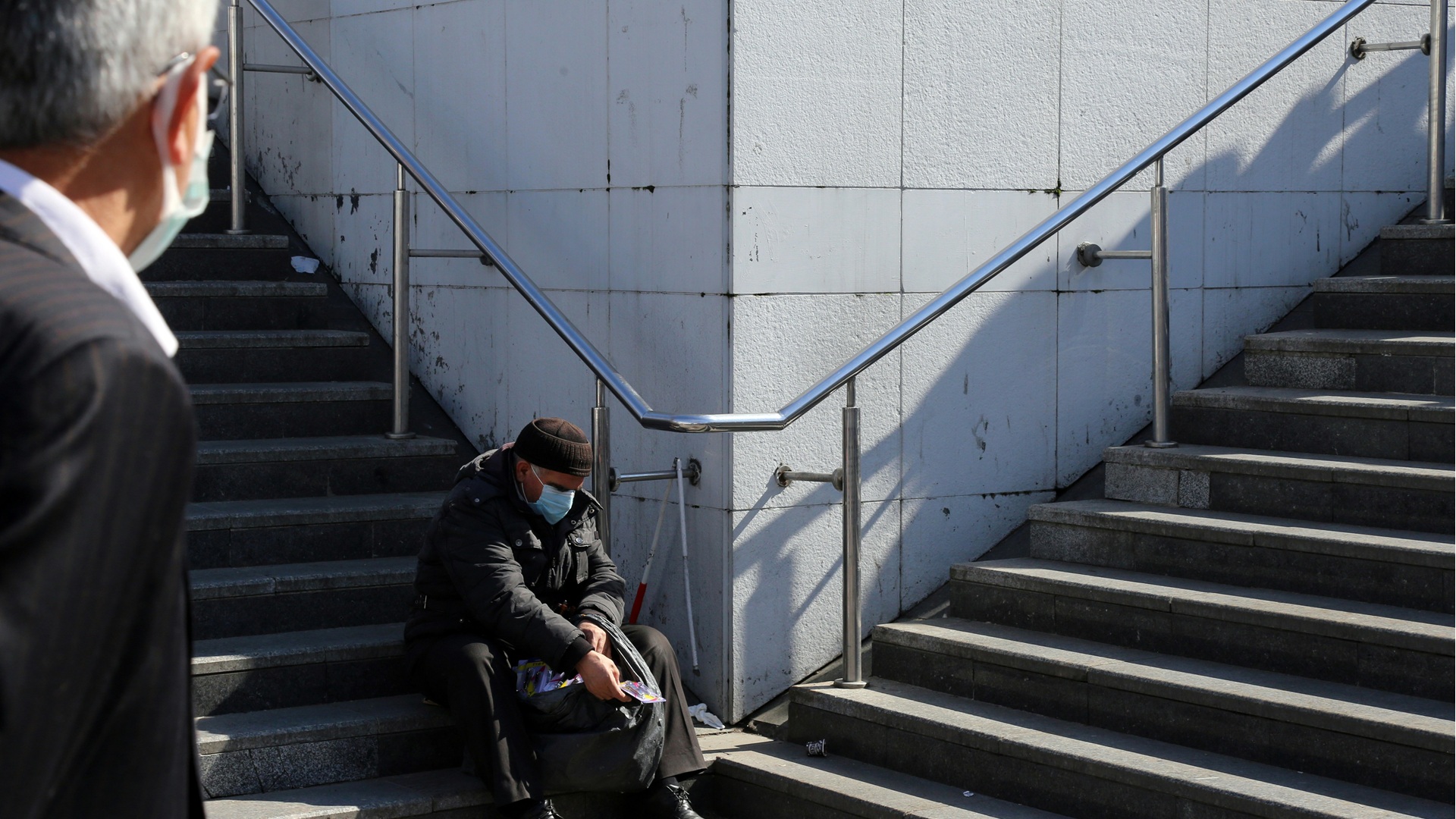The Scottish government declared a housing emergency last year but Maeve McGoldrick, head of policy and communications for Crisis Scotland, said the homelessness situation had deteriorated since then.
“These figures are proof of a homelessness system at breaking point. It’s particularly worrying to see such a large rise in people being forced to sleep rough on the street – we know how dangerous that can be,” said McGoldrick.
“People are entering the homelessness system and getting trapped there, while more and more local authorities are breaching their own legal duties. It’s now obvious that, when it comes to turning around rising levels of homelessness, short-term solutions just won’t cut it.
“We know how to tackle and ultimately end homelessness in Scotland. That means building significantly more social homes, so supply meets growing demand. And it means reforming our public services to support people much earlier on, helping households to keep their home. We know this is possible – we just need a long-term, bold and strategic plan that ends homelessness in Scotland for good – and crucially, the political will to make this happen.”
The Scottish government published an emergency action plan to tackle the housing emergency earlier this month, pledging to invest £4.9 billion over the next four years to build 36,000 affordable homes and provide a home for up to 24,000 children.
Ministers also pledged to double investment in acquisitions, implement Awaab’s Law to address housing hazards and action in rural areas, planning and supporting domestic abuse survivors.
Advertising helps fund Big Issue’s mission to end poverty
Màiri McAllan, cabinet secretary for housing, said: “Tackling the housing emergency will be a cornerstone in our efforts to achieve the Scottish government’s key priority of eradicating child poverty. I am determined this action plan will deliver positive and lasting change.”
The Scottish Housing Bill will also return to the Scottish parliament next week, promising, among other changes, powers to cap rent increases.
The homelessness statistics revealed more than 400 private renters became homeless due to arrears. That figure is 15% higher than a year before.
Citizens Advice Scotland (CAS) said the average rent debt among its clients is now £4,279.
“People simply do not have enough money to cover rents. Alongside the emergency action plan, we need to see the implementation of the rent control measures contained in the Housing (Scotland) Bill,” said CAS housing spokesperson Aoife Deery, who also called on the UK government to urgently review local housing allowance.
“These new figures show without doubt the deepening nature of the national housing emergency with over 17,000 households in temporary accommodation last year, an increase of 6%. Demand for housing advice from our advisers in bureau across Scotland is also growing, which highlights the value of advice as people face unimaginable uncertainty about their homes.
Advertising helps fund Big Issue’s mission to end poverty
“Last year, the Scottish Citizens Advice Bureau network gave housing advice more than 62,000 times, an increase of 7% on the year before, with a particular surge in demand for advice on homelessness. We need the Scottish government to immediately implement its housing emergency action plan.”
Gordon MacRae, Shelter Scotland assistant director communications and advocacy, said that immigration was a factor in rising homelessness in Scotland but, ultimately, a failure to deliver enough social homes was the key driver.
“In the current climate, the failures of the Home Office and the asylum system are making an already difficult situation for councils worse. It’s never been more important that politicians show the public that they can fix the housing system and stop the racists and those that seek to divide us from weaponising the current housing emergency,” said MacRae.
“All of Scotland’s politicians know what is needed: deliver a minimum of 15,693 social homes every year so that the local services that can prevent and end homelessness have the tools to do their job.
“If they choose not to do that, we should expect that the next set of homelessness statistics will be worse yet again. Social homes are not an aspiration. They are indispensable.”
Read more:
Advertising helps fund Big Issue’s mission to end poverty
Scotland’s figures come a week after Wales’ homelessness statistics were revealed.
The Welsh government is also working on new legislation with the Homelessness and Social Housing Allocation (Wales) Bill looking to move towards preventing homelessness.
The bill is currently making its way through the Senedd ahead of next year’s elections.
The stats showed a 10% annual fall in the number of households threatened with homelessness, falling from 8,772 households to 7,920.
The number of households assessed as homeless and owed a duty to help secure accommodation also decreased by 2% to 13,287.
The number of households in temporary accommodation was down 3% too to 6,285 households.
Advertising helps fund Big Issue’s mission to end poverty
Andrew Connell, policy manager at The Salvation Army, said: “It’s good to see a fall in the number of people experiencing homelessness in Wales last year. We must remember that the trend over time has been ever upwards and that needs to be reversed.”
Ruth Power, CEO of Shelter Cymru, added: “With potentially transformative homelessness legislation before the Senedd and an election on the horizon we believe that now is the moment for all political parties in Wales to commit to ending the housing emergency once and for all.”
Do you have a story to tell or opinions to share about this? Get in touch and tell us more.
Reader-funded since 1991 – Big Issue brings you trustworthy journalism that drives real change.
Every day, our journalists dig deeper, speaking up for those society overlooks.
Could you help us keep doing this vital work? Support our journalism from £5 a month.
Advertising helps fund Big Issue’s mission to end poverty





